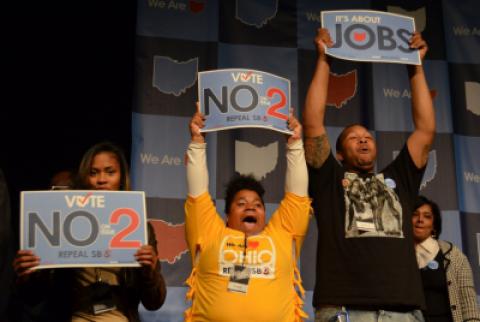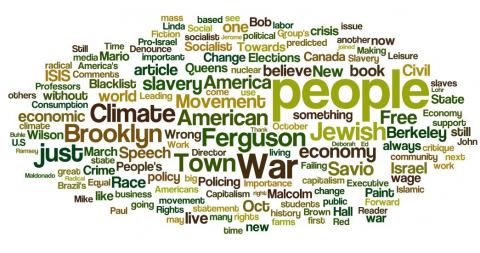People's Veto of a Union-Busting Law Holds Lessons
Labor Notes

A new book, "Collective Bargaining and the Battle of Ohio: The Defeat of Senate Bill 5 and the Struggle to Defend the Middle Class," by John McNay, draws lessons from the battle in Ohio that defeated a Republican anti-union bill by public referendum.









Spread the word